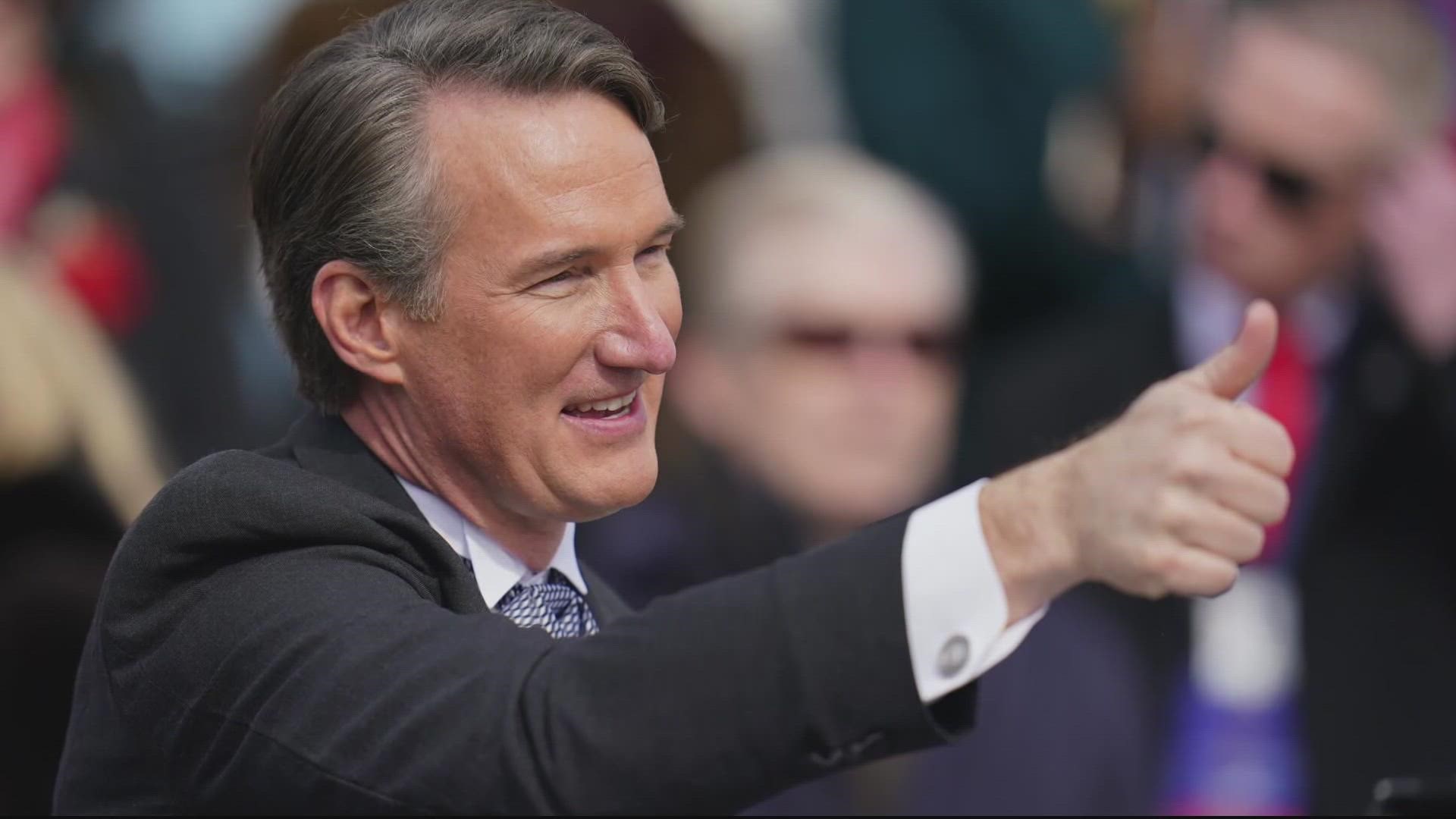ALEXANDRIA, Va. — Some parents in Virginia are discussing Gov. Glenn Youngkin’s new model policies for the treatment of transgender students, which is set to roll back some accommodations while tightening parental notification requirements.
The guidance is subject to a 30-day public comment period that opens later this month.
Some Virginia teachers, a parent and a transgender student spoke with WUSA9 about the new model policies from the Virginia Department of Education and shared their thoughts on the direction the state is moving in.
The summer leading into this school year was a transformative one for a 12-year-old named Oliver, who said he identifies as transgender. “I started going by Oliver because I felt that it was right for me and I did not think Sophie was a fitting name,” he said.
Oliver's mother, Rada, told WUSA9 they talked about Gov. Youngkin’s proposed changes to transgender policies.
The new model says students will have to use bathrooms based on their biological sex and students under 18 have to go by the name and pronouns in their official records unless a parent approves another.
The updated guidelines also say that school divisions must ensure no student is discriminated against or harassed on the basis of his or her sex and should "attempt to accommodate students with distinctive needs, including any student with a persistent and sincere belief that his or her gender differs from his or her sex."
Rada doesn’t believe changes should be made. “The school year started, they asked them, "What's your pronouns? What's your name?" How are they going to take it back now? We are for four weeks into the school year in Virginia. I'm going to give Oliver permission to be called Oliver, whatever he wants to be called. Because he's already been asked this by the school. So, the way this is rolled out and managed is completely screwed up from my perspective,” Rada said.
Carissa teaches Kindergarten. She said the new model is asking a lot from teachers.
“We just really want to focus on education and I think we're not here to really parent. We're just there to kind of give the education part of it,” she said.
Jamie is a fourth-grade teacher in Arlington. She said at that level, it’s imperative to teach children to express their voices. “I think in a fourth-grade classroom, we're just trying to get kids to express their voice and whatever their voice is . . . like finding it in themselves and just encouraging them that, you know, you matter, no matter what you are, you matter,” Jamie said.
Sara, who is a kindergarten teacher, said representation matters in schools and it spans beyond gender and race.
“My personal philosophy when I teach is, I'm teaching people of the world. So I want them to learn and know about the world. Because how can you be a part of the world, if you're not educated and exposed to all of it?” Sara said.
For now, Oliver is focused on navigating the world that is middle school. He’s thankful that he’s supported in his transition and his mother said she’s glad they’re able to have open communication. Oliver hopes state leaders reconsider their stance.
“It's already hard enough transitioning in a world where sometimes people might not be supportive.[The law] isn't going to make it any easier. And for other transgender people, I’d like to say, 'stay strong! It's going to be okay!'” Oliver said.
Sign up for the Get Up DC newsletter: Your forecast. Your commute. Your news.
Sign up for the Capitol Breach email newsletter, delivering the latest breaking news and a roundup of the investigation into the Capitol Riots on January 6, 2021.

